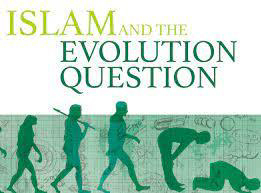
In the quest to reconcile the rich tapestry of Islamic theology with the meticulous findings of modern science, specifically evolutionary theory, it is imperative to approach the dialogue with both reverence for faith and respect for empirical evidence. This essay endeavors to explore the compatibility between Islamic doctrine and the theory of evolution, asserting that both can coexist not only harmoniously but also complementarily, enriching our understanding of creation and the Creator.
The Islamic Perspective on Creation
Islamic doctrine, largely derived from the Qur’an and Hadith, presents a worldview that encompasses a supreme, omnipotent Creator, Allah, who fashioned the universe and everything within it. The Qur’an, while not a scientific text, provides a framework for understanding the world, emphasizing Allah’s omnipresence, omnipotence, and omniscience. Verses such as “And it is He who produced you from a single soul” (Qur’an 6:98) are often interpreted as reflections on the unity and continuity of creation.
Evolutionary Theory Overview
The theory of evolution, first articulated in its modern form by Charles Darwin in the 19th century, posits that all species of organisms arise and develop through the natural selection of small, inherited variations that increase the individual’s ability to compete, survive, and reproduce. This theory, grounded in decades of scientific research and data collection, has become a fundamental explanatory framework for the diversity of life on Earth.
Harmonizing Islamic Doctrine with Evolutionary Theory
The reconciliation of Islamic doctrine with evolutionary theory lies in the understanding of divine action and natural processes. Islamic theology acknowledges Allah as the Creator whose methods and timelines are beyond human comprehension. This perspective does not preclude the mechanisms of evolution as means through which Allah’s creation unfolds. Rather, it can be viewed as a process set into motion by Allah, with evolution being the means by which diversification and development are achieved.
Qur’anic Compatibility with Evolution
Several scholars have argued for an interpretation of Qur’anic texts that is compatible with evolutionary principles. For instance, verses that speak to the creation of life in stages (e.g., Qur’an 71:14) can be harmonized with the gradual process of evolution. Moreover, the Islamic view that humans have a unique place in creation due to their intellectual faculties and spiritual potential does not necessarily contradict the physical evolution of human beings from earlier forms of life; it rather emphasizes the divine endowment of reason and spirituality.
Theological Openness to Scientific Inquiry
A key facet of reconciling Islamic doctrine with evolution is the embrace of scientific inquiry, a principle deeply embedded in Islamic tradition. The rich history of Islamic scholarship in fields such as astronomy, mathematics, and medicine illustrate the faith’s encouragement of knowledge acquisition and understanding of the natural world. This tradition supports the view that seeking knowledge about the mechanisms of life and the universe is a form of worship and appreciation of Allah’s creation. As such, The Quran counsels readers to reflect on the natural world as a means to understand the Creator’s power and wisdom. This encouragement towards contemplation has led some to argue that the Quran supports a view of the universe that is compatible with scientific inquiry and discovery, including the theory of evolution.
Understanding Adam and Eve in the Quran
The story of Adam and Eve in the Quran provides a spiritual and moral account of human origins, focusing on themes of obedience, repentance, and divine mercy. Unlike the Biblical narrative, which has often been interpreted in ways that might conflict with evolutionary theory, Islamic teachings, including those in the Quran, can be seen as more allegorical or metaphorical, allowing for a variety of interpretations that can align with modern scientific understandings, including evolution. The Quranic narrative does not provide detailed descriptions of the physical creation of humans that would directly contradict evolutionary theory. Instead, it places emphasis on the moral and spiritual dimensions of human existence, highlighting the unique status of humans as beings endowed with knowledge, will, and responsibility.
Islamic scholars have diverse views regarding human evolution. While some argue that the creation of Adam and Eve as described in the Quran may be a miraculous event the sits outside the scope of natural processes such as evolution, more contemporary scholars propose that while the creation of Adam and Eve holds a special place in Islamic theology, this does not preclude the possibility that the physical forms of human beings have undergone an evolutionary process, a view that attempts to harmonize the religious text with scientific perspectives.
Thus, the story of Adam and Eve in the Quran, when interpreted within a broader and more allegorical framework, does not necessarily contradict the theory of evolution. This approach allows for a reconciliation between faith and reason, where religious beliefs and scientific understanding can coexist and inform each other in meaningful ways.
Conclusion: A Convergence of Faith and Reason
The reconciliation between Islamic doctrine and evolutionary theory is not only possible but also enriching, offering a fuller understanding of creation that is both spiritually meaningful and scientifically grounded. By acknowledging the divine origin of all life and recognizing the mechanisms through which creation unfolds, believers can celebrate the majesty of Allah’s work through both the lens of faith and the rigor of science. This harmonizing perspective nurtures a deeper appreciation of the complexity and beauty of the natural world, drawing the faithful closer to the Creator through the marvels of His creation.


